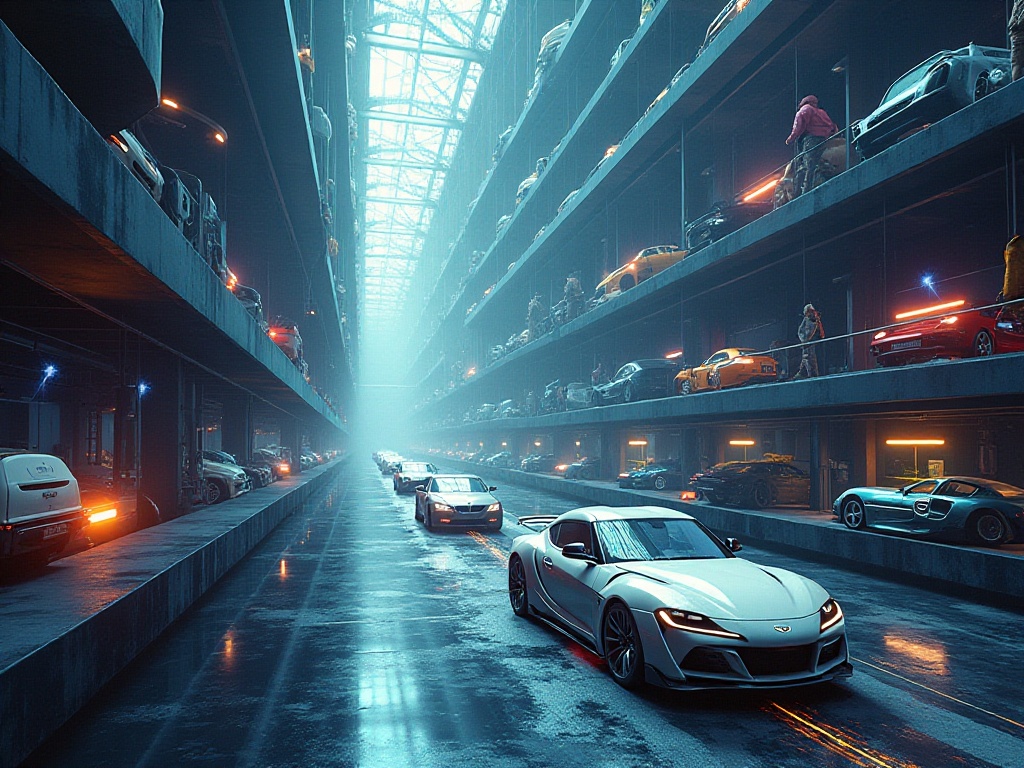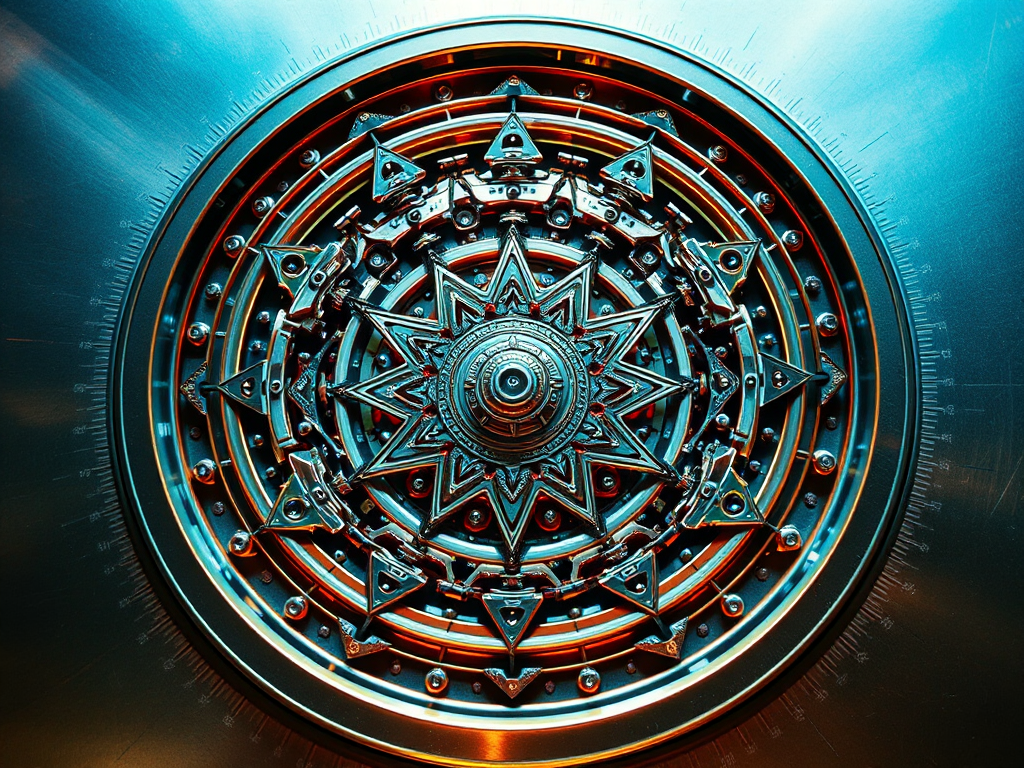Introduction
As a first-time car owner, I really made quite a few mistakes. I remember my first maintenance visit to the dealership when the sales consultant told me "Your car needs to replace the oil filter, air filter, and AC filter." I foolishly just said "okay, okay" like an idiot, only to realize later that I had been ripped off. Back then, I couldn't even distinguish between oil grades, let alone understand what the "three filters" meant.
However, after years of learning from experienced drivers and frantically searching for car knowledge online, I can now consider myself a semi-expert. Today I want to share all the pitfalls I've encountered and the experience I've accumulated over these years, hoping to help young car owners like myself avoid some detours.
Daily Checks
When it comes to car maintenance, the most crucial thing is developing good habits for regular inspections. Just like we brush our teeth and wash our face every day, our cars need regular attention too. I now spend about half an hour every weekend giving my car a thorough check-up.
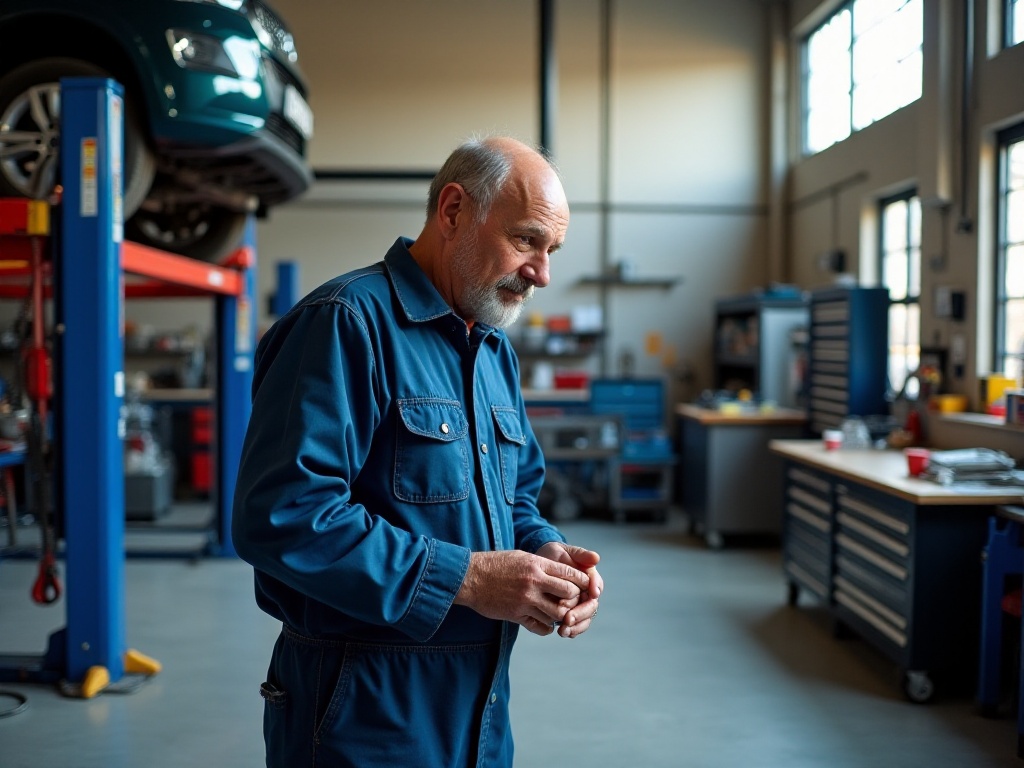
Tire Maintenance
Tires are truly one of the most easily overlooked components of the entire car. When I first bought my car, I had no idea what tire wear meant. It wasn't until I almost rear-ended another car on a rainy day that I realized the importance of tires.
Checking tire wear is actually very simple. I now use a one-yuan coin for checking. Insert the coin upside down into the tire tread - if you can see the top of Mao's head, it's time to replace the tires. This trick is super practical, and I check it every time I wash the car now.
Another crucial matter is tire pressure. Previously, I drove for six months without noticing insufficient tire pressure. Later, I discovered my fuel consumption was 20% higher than the same model. This scared me into quickly getting the tires inflated. Now I regularly check tire pressure at a nearby gas station every month. Correct tire pressure not only makes the car run more steadily but also greatly reduces fuel consumption. From my experience, for every 0.1 bar drop in tire pressure, fuel consumption increases by about 1%.
Tire rotation is also a technical job. Many people might think uneven wear between front and rear tires is normal, but it's not. I now rotate my tires every 8,000 kilometers, which allows for more even wear and extends tire life by over 30%. How to rotate? Generally, front tires are moved diagonally to the rear, and rear tires are moved directly to the front. However, if your tires have directional treads, you can only swap them front to back.
Fluid Checks
Fluid checks are really a science. I now routinely check various fluids every weekend when washing the car, and this habit has saved me a lot in repair costs.
Let's start with engine oil, which is the lifeblood of the engine. Checking oil is simple: pull out the dipstick, wipe it clean, reinsert it and pull it out again to see where the oil level sits. It should be between the two marked lines. But checking the level isn't enough; you also need to look at the oil's color. New oil is honey-colored; if you notice it's turned coffee-colored or even black, it's time for a change.
Coolant is also especially important, particularly in summer. I previously didn't know better and thought adding tap water to the radiator was fine, which almost ruined my engine. Now I regularly check the coolant level and concentration to ensure the engine operates at normal temperature. When adding coolant, always use dealer-certified brands - don't try to save money by buying from roadside stands, as those might not even have anti-rust properties.
Brake fluid is even more critical. I check the brake fluid color every time, and if it appears dark or black, it's time for replacement. Brake fluid should generally be changed every two years or 40,000 kilometers - this isn't something to skimp on as it concerns life safety.
Transmission fluid is often overlooked, but it's also very important. Manual transmission fluid should be changed every 50,000 kilometers, while automatic transmission fluid can be extended somewhat. I previously experienced sluggish shifting due to not changing the transmission fluid on time, but after changing to new fluid, the whole car became much more responsive.
As for windshield washer fluid, I now mix it myself. Buy concentrated washer fluid and mix it with water at a 1:4 ratio - it's much cheaper than buying pre-mixed. Just remember to adjust the ratio to 1:2 in winter to prevent freezing.
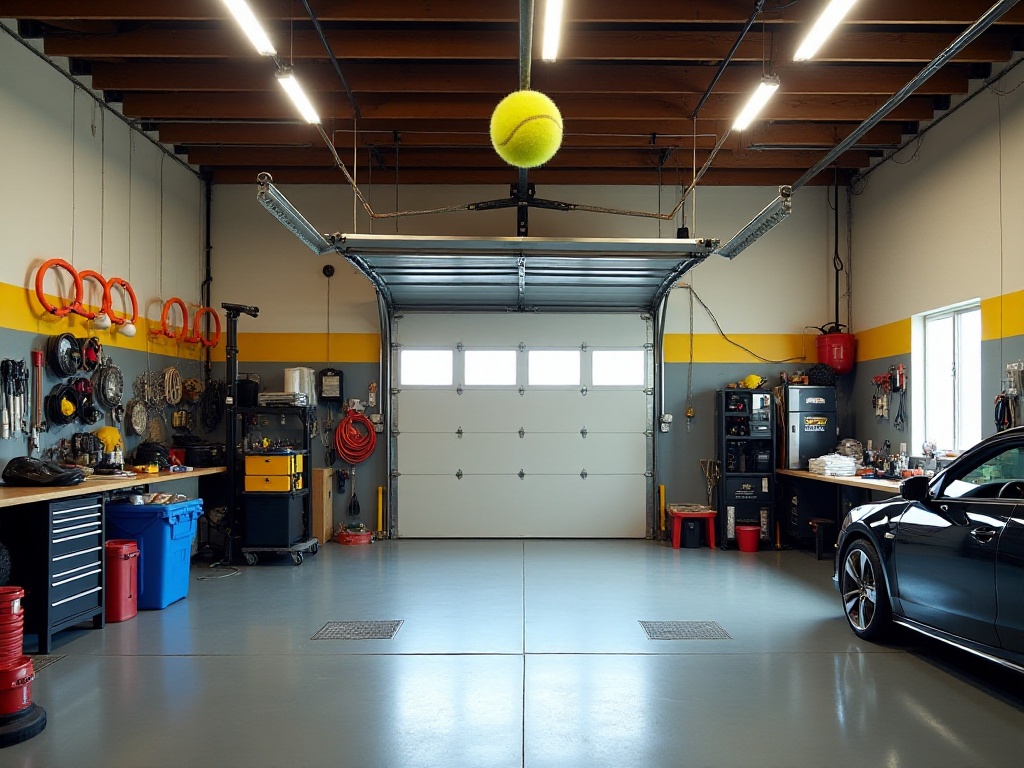
Fluid Check Precautions
There's a particularly important detail about checking fluids - timing. It's best to check after the car has been parked overnight and the engine has completely cooled down the next morning, as this provides the most accurate readings. If you check right after driving, the oil will be expanded due to heat, leading to inaccurate readings.
Also, be extremely careful when adding fluids to avoid mixing them up. I've seen someone add engine oil instead of brake fluid, which resulted in the entire brake system being ruined, with repair costs reaching several thousand yuan. So now I label all fluid caps to prevent mistakes.
Regular Maintenance
Regarding regular maintenance, many people think just following the maintenance manual's mileage recommendations at the dealership is enough. But actually, there are many details to pay attention to beyond routine maintenance.
Key Components
The PCV valve - honestly, I didn't know what it was for at first either. Later, when I noticed unstable idle speed and had it checked at the repair shop, it turned out the PCV valve was clogged. This small part is actually very important - it's responsible for routing crankcase gases back to the intake system for re-burning, which is both environmentally friendly and reduces engine carbon deposits.
I now check the PCV valve every 10,000 to 15,000 kilometers. The checking method is simple - remove the valve and shake it; if you hear a rattling sound, it's still good. If there's no sound, just spend twenty or thirty yuan to replace it. That's much cheaper than a major engine overhaul.
I learned my lesson with spark plugs too. Once while driving, I suddenly felt severe engine vibration and feared I needed a major repair. At the repair shop, it turned out the spark plugs just needed replacement. Now I change spark plugs every 30,000-40,000 kilometers - even the most expensive spark plugs only cost a few hundred yuan, which is much more economical than engine repairs.
Speaking of spark plugs, there's another detail to note. Always choose the manufacturer-recommended model - those so-called high-performance spark plugs might not suit your car. I was once deceived into installing an iridium spark plug that claimed to boost power, but it burned out shortly after.
The transmission is also crucial. I have an automatic, and it used to feel jerky when starting. Later, I learned a trick from online forums - wait a moment before moving off to let the transmission fluid warm up. Now the car runs much smoother, and the transmission should last longer too.
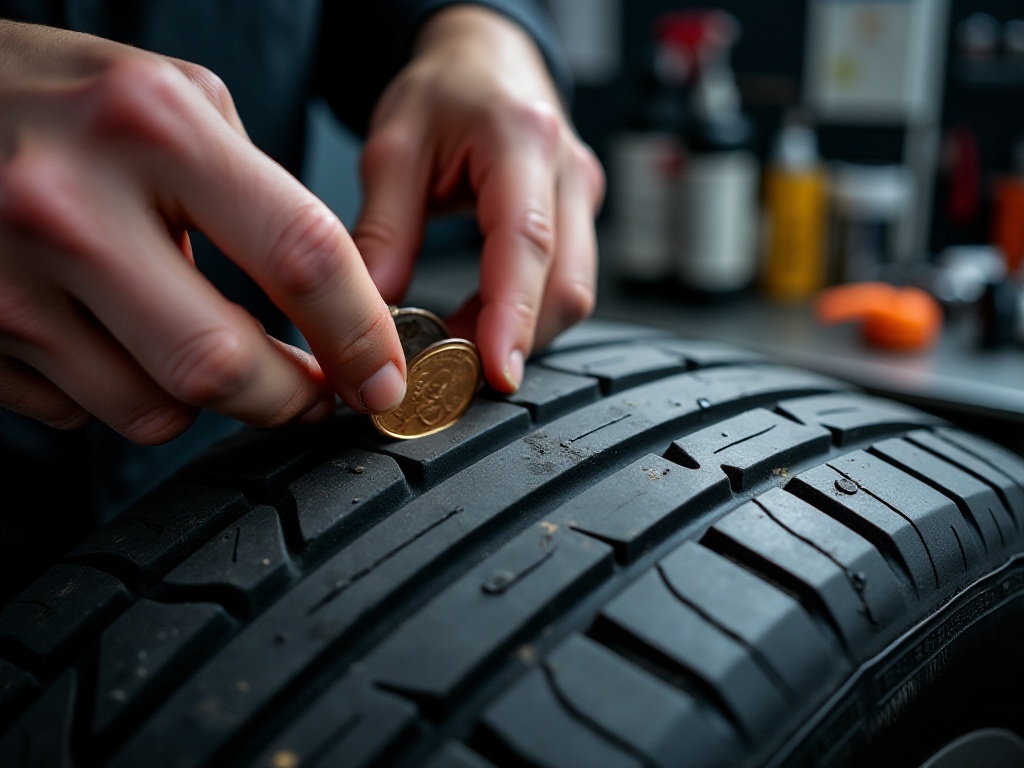
Filtration System
When it comes to the filtration system, there's a lot to discuss. Many people think the three filters (oil filter, air filter, and AC filter) aren't important, but they're actually key components in protecting the engine.
The air filter is like a face mask for your engine, preventing dust and debris from entering the cylinders. I once did an experiment - held the old air filter up to sunlight, and the level of dirt was incredible. According to professional research, timely air filter replacement can reduce fuel consumption by 14% and improve engine power output.
Now I replace the air filter every other maintenance service - it doesn't cost much, but the effect is very noticeable. There's also a detail to note when replacing - clean the air filter box thoroughly, otherwise a new filter won't help much.
The oil filter's importance goes without saying. It's like the engine's kidneys, filtering impurities from the oil. I now replace the oil filter with every oil change - it costs a bit more, but it's worth it for engine health.
Many people overlook the AC filter, but it's also important. It not only filters dust and pollen from the air but also absorbs odors. I previously had a musty smell in the car due to a dirty AC filter. After replacing it, the interior air quality improved immediately.
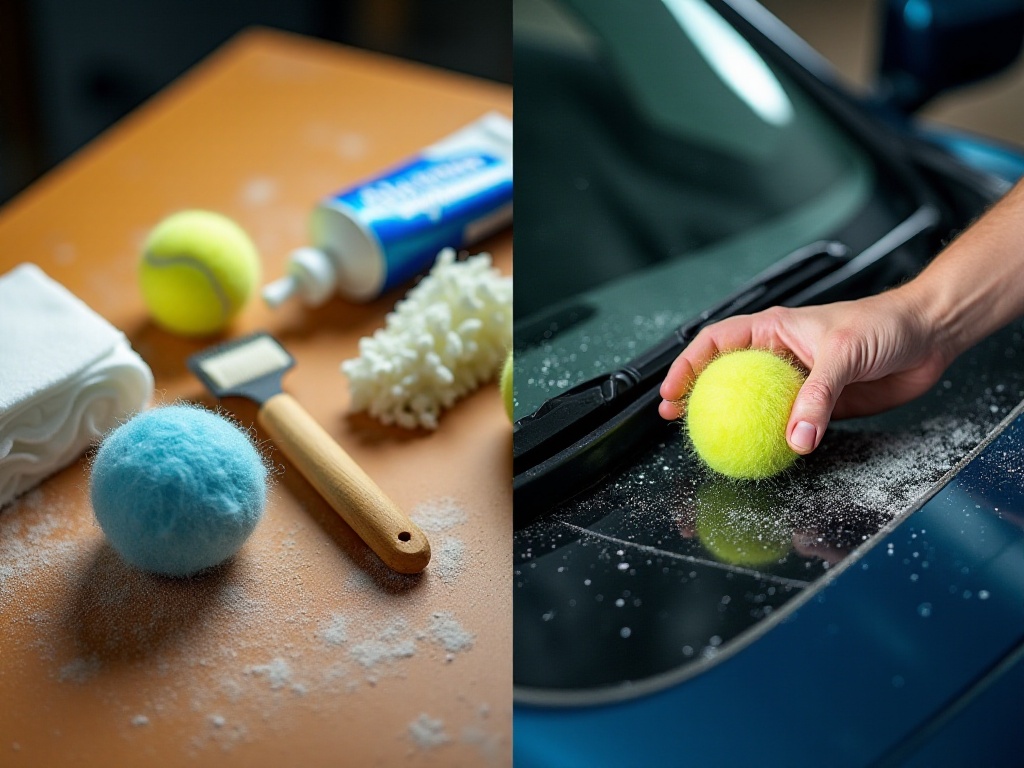
Practical Tips
Interior organization is an art. My car used to be messy, but I've gradually figured out some practical storage methods.
Interior Organization
The most practical solution is using cereal boxes for storage. I bought a family-size cereal box from the supermarket, emptied it, and it fits perfectly in the glove box. It can be used to organize various small items like parking cards, coins, tissues, making everything neat and tidy.
Another great trick is using bathroom organizers. I bought a suction-cup bathroom organizer from Taobao and hung it on the back of the rear seat to hold umbrellas, tissue boxes, garbage bags, etc. The key is it's easily accessible and doesn't take up space.
I also put a folding storage box in the trunk - it stays folded when not needed but can hold lots of items when opened. It's especially useful for supermarket shopping trips.
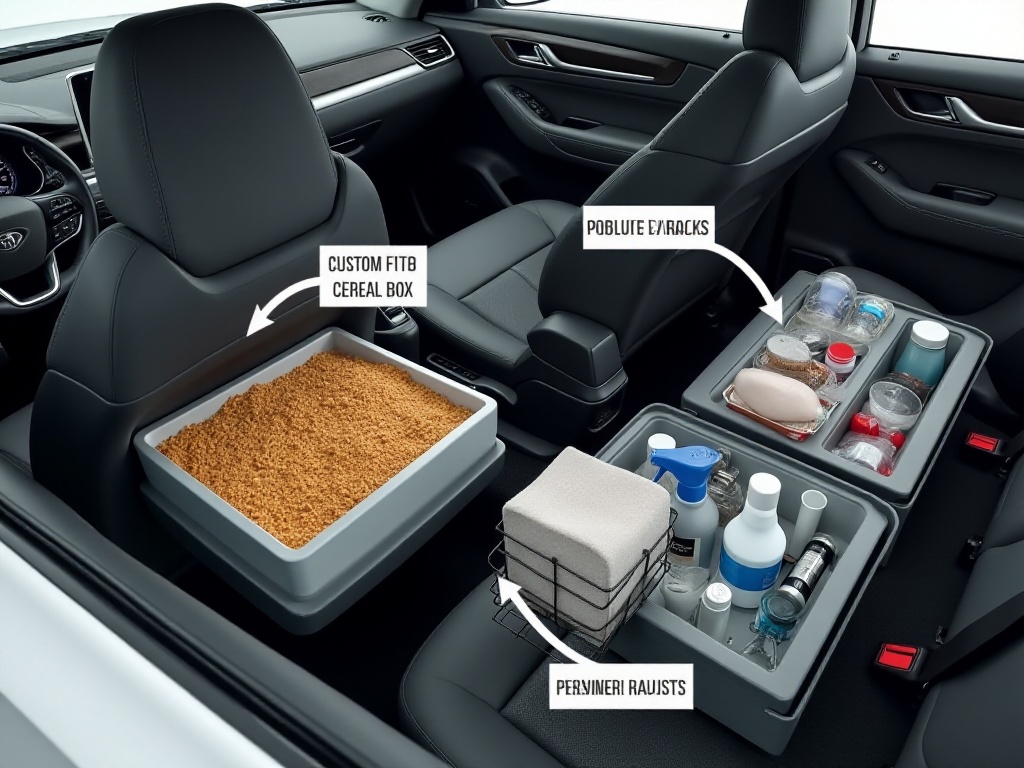
Vehicle Protection
When it comes to vehicle protection, I have quite a few special tricks. First is parking protection - I use a simple solution in my garage: swimming pool noodles. I bought several from Taobao, cut them to suitable lengths, and fixed them to the garage walls. This way, even if you accidentally bump the wall, it won't scratch the paint.
There's also a trick for judging parking position. I hung a tennis ball from the garage ceiling, adjusted so it just touches the windshield at the right spot. This way, when I see the tennis ball while parking, I know exactly where to stop. This trick is super useful - no more worrying about parking too far forward or back.
There's also a small tip for protecting the paint. I always use microfiber towels to dry the car after washing - these towels won't scratch the paint. I keep several towels, using different ones for the body, glass, and wheels to avoid cross-contamination.
Money-Saving Tips
When it comes to saving money, I've gathered quite a bit of experience. First, oil changes don't necessarily need to be done at the dealership. Find a reliable repair shop that uses manufacturer-certified oil, and the price can be half as much. Just make sure the mechanic uses a torque wrench to tighten the drain plug to prevent oil leaks.
Tires are also a significant expense. I now compare prices online and then go to physical stores for installation. Many shops will install tires you bring yourself, which saves quite a bit of money. Also, check the tire's manufacturing date - don't buy tires that have been in stock too long.
Also, learn to distinguish between necessary and unnecessary maintenance items. For example, fuel system cleaning isn't really needed if you regularly use good quality fuel and run through full tanks. Engine cleaning is the same - unless it's extremely dirty, it's unnecessary. These are often "intelligence tax" items that dealerships like to recommend.
Conclusion
Car maintenance does require time and effort to learn, but once you master these techniques, you can not only save money but also help your car last longer. Remember, your car is like a good partner - take good care of it, and it will reward you well. I hope these experiences can help young car owners like myself avoid detours and spend money wisely.





